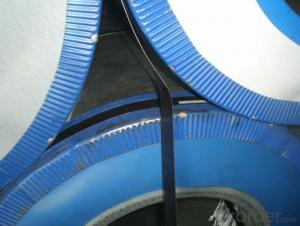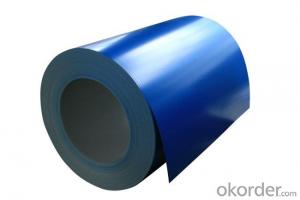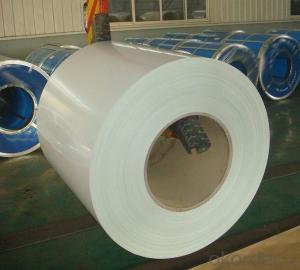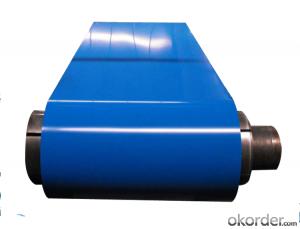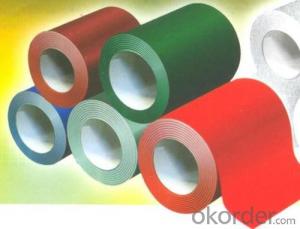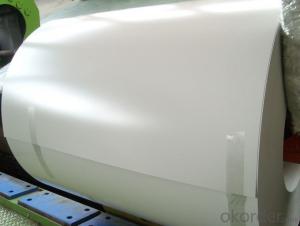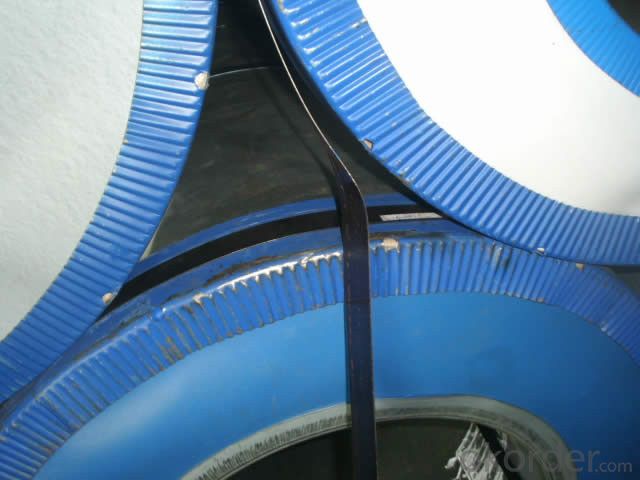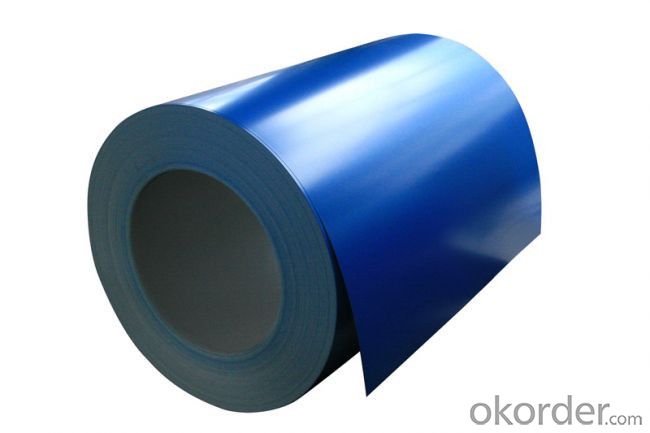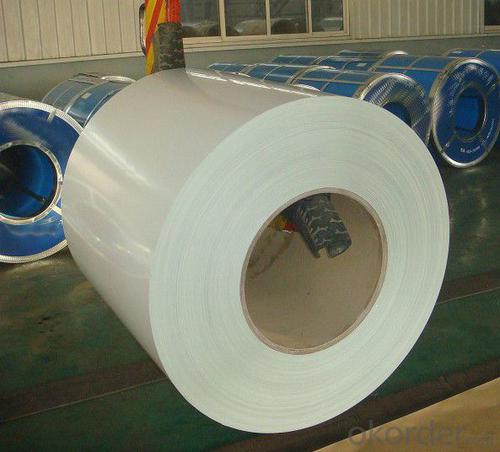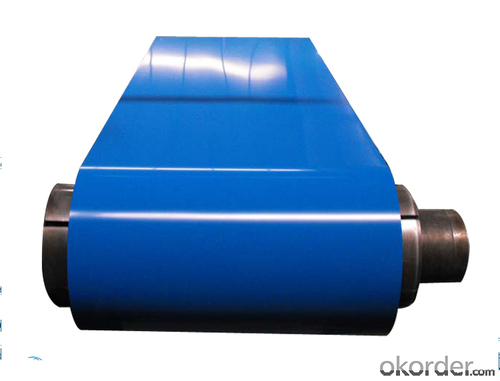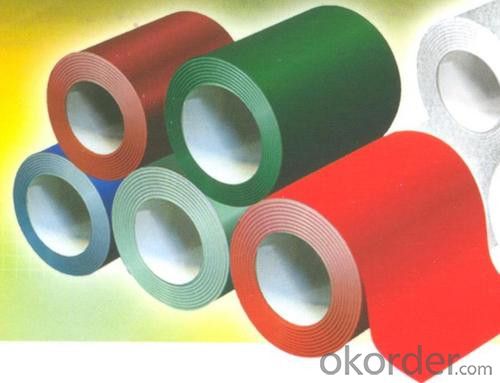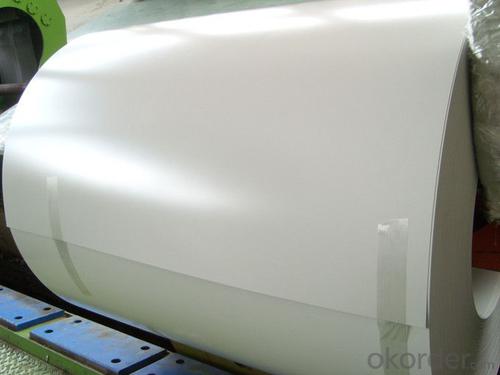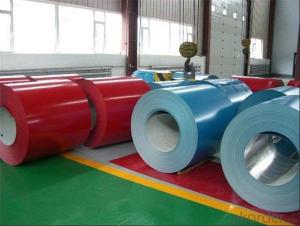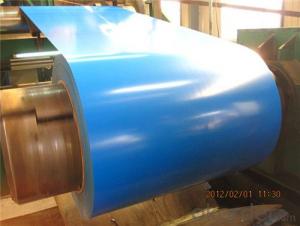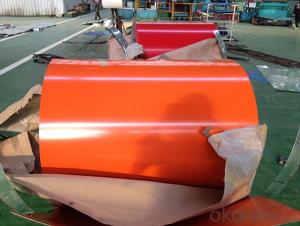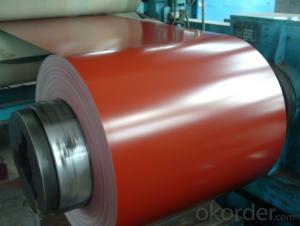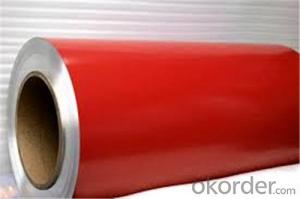Z52 BMP Prepainted Rolled Steel Coil for Construction
- Loading Port:
- Shanghai
- Payment Terms:
- TT OR LC
- Min Order Qty:
- 50 m.t.
- Supply Capability:
- 30000 m.t./month
OKorder Service Pledge
OKorder Financial Service
You Might Also Like
Structure of Z52 BMP Prepainted Rolled Steel Coil for Construction
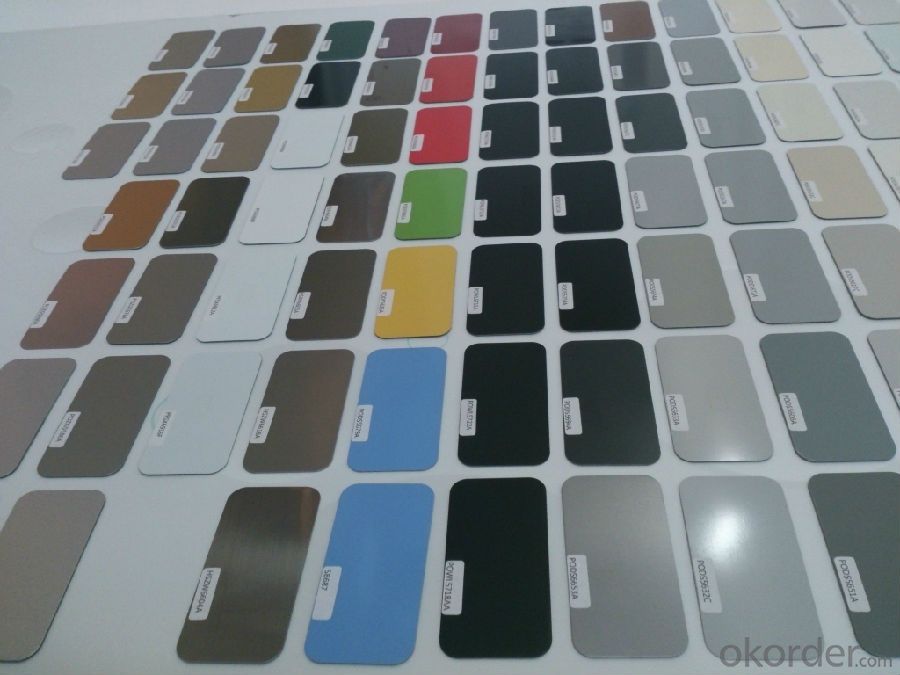
Description of Z52 BMP Prepainted Rolled Steel Coil for Construction
1. Prepainted steel coil is coated with organic layer, which provides higher anti-corrosion property and a longer lifespan than that of galvanized or galvalume steel sheets.
2. The base metals for prepainted steel coil consist of cold rolled, HDGI Steel, electro-galvanized and hot-dip alu-zinc coated steel. The finish coats of prepainted steel coil can be classified into groups as follows: polyester, silicon modified polyesters, polyvinylidene fluoride, high-durability polyester, etc.
3. The production process has evolved from one-coating-and-one-baking to double-coating-and-double-baking, and even three-coating-and-three-baking.
4. The color of the prepainted steel coil has a very wide selection, like orange, cream-colored, dark sky blue, sea blue, bright red, brick red, ivory white, porcelain blue, etc.
5. The prepainted steel coils can also be classified into groups by their surface textures, namely regular prepainted sheets, embossed sheets and printed sheets.
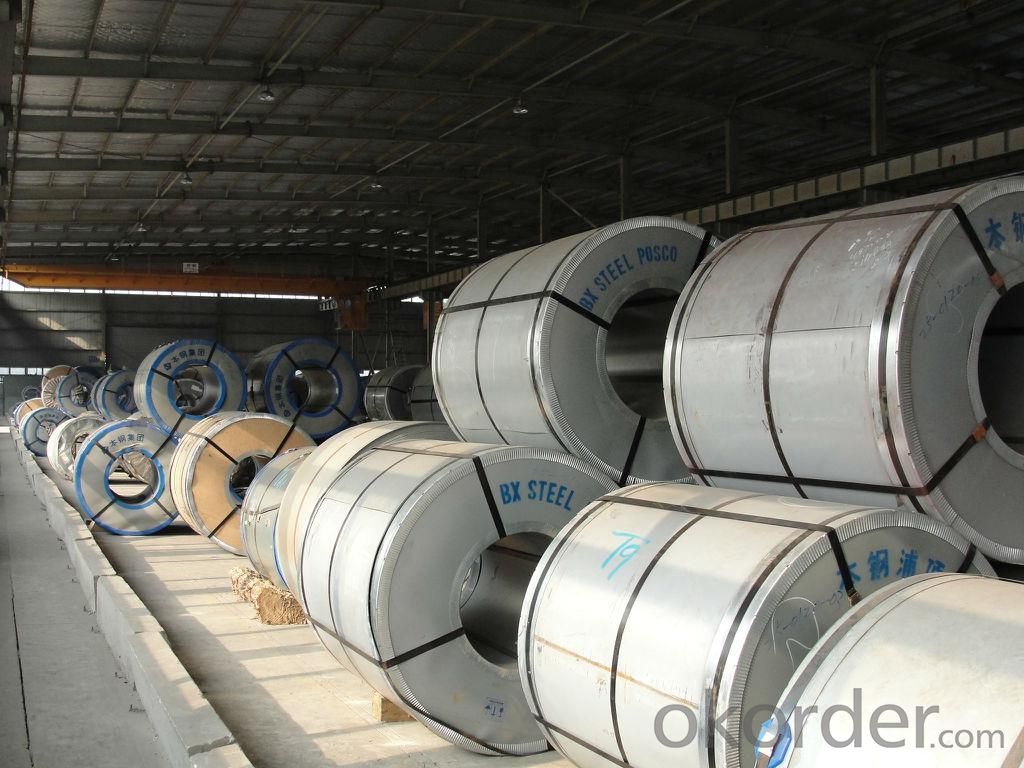
Main Feature of Z52 BMP Prepainted Rolled Steel Coil for Construction
Uncoated CR steel sheet
With the features of in line with the international highest standards in demension and shape, excellent surface finish and properties, the products are mainly used in home appliance and automobile industries.
Galvanized steel sheet(include HDG and EG)
With the features of good corrosion resistance, the products are mainly used in automobile, home appliance, electronics, building and machinery manufacture industries, etc.
Precoated steel sheet
With the features of enviromental protection and good processablility, long lasting surface durability, rich in colors, the products are maily used in building, home appliance and furniture industries, etc.
Applications of Z52 BMP PPGI Prepainted Rolled Steel Coil for Construction
A. Corrugated design makes it excellent waterproof performance
B. Materials as prepainted steel sheets, galvanized steel sheets, galvalume (Al-Zn coated sheets) are available to make corrugated sheet.
C.Those material are durable, anti-corrosion in bad weather for 20-30 years based on it's Zinc(Galvanized) coating or AZ (Galvalume) coating.
D. Different shape of the sheet make it suitable for any style of buildings.
E.Easy to install, no need special tools to fix the sheet.
F.Light weight due to high strength to weight ratio of steel. Light weight means easier handling lower shipping costs, easier installation
G. Different color is availbe base on the RAL Standard make your building more beautiful.
H. We will provide the best solutions if you don't have a exact idea of the specification you want for the steel sheet based on your weather conditions, engineering structure, construction budget and so on.
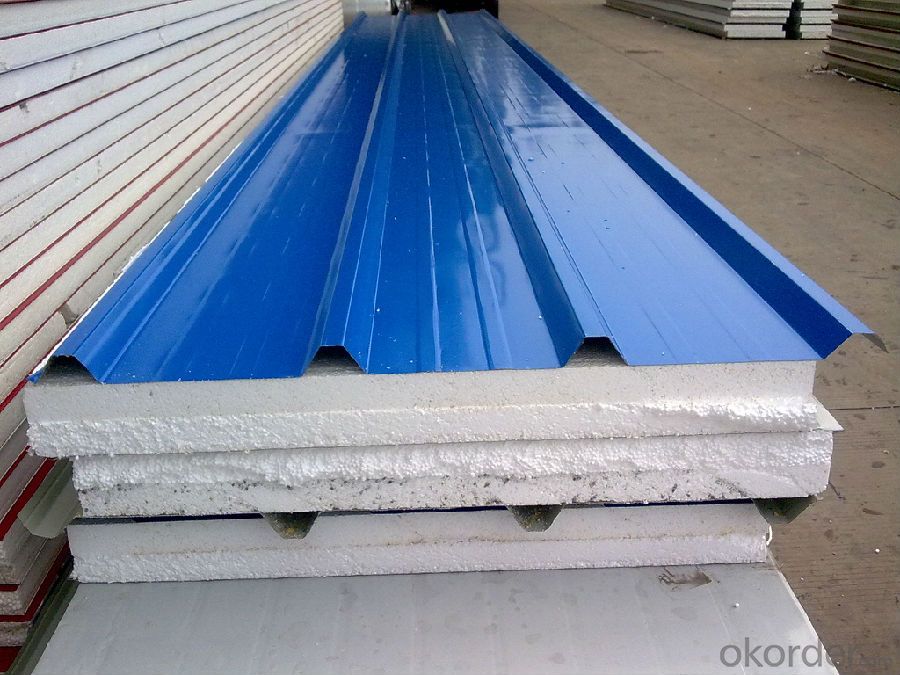
Specifications of Z52 BMP Prepainted Rolled Steel Coil for Construction
Product | Z52 BMP Prepainted Rolled Steel Coil for Construction |
Material Grade | SGCC / SGCH / DX51D+AZ, etc |
Thickness | 0.6-3.0mm |
Width | 500-1500mm |
Tolerance | Thickness: +/-0.02mm , Width:+/-2mm |
Zinc-coating | Z30-150g/m2 |
Technique | Raw material: Hot rolled steel coil --> Cold rolled_>hot dipped galvalume |
Surface | Dried, Chromated, Unoiled |
Spangle | Regular spangle , small spangle, zero spangle |
ID | 508MM 610MM |
Coil weight | 1-25MT |
Export package | Cardboard inner sleeves, Waterproof paper, galvanized steel covered and steel strip packed |
FAQ of Z52 BMP Prepainted Rolled Steel Coil for Construction
We have organized several common questions for our clients,may help you sincerely:
1. How Can I Visit There?
Our company is located in Tianjin City, China, near Beijing. You can fly to Tianjin Airport Directly. All our clients, from home or aboard, are warmly welcome to visit us!
2. How Can I Get Some Sample?
We are honored to offer you sample.
3. Why choose CNBM?
Our delivery time about 15-20days for standard sizes, if you have other requirements like hardness, quanity and width ,it is about 20-40days. But don't worry we also try our best for the delivery time ,because time longer and our cost is higher.
- Q: What is the purpose of steel coils?
- The purpose of steel coils is to serve as a form of material storage and transportation for various industries. These coils are typically made by winding steel strips into a circular shape, providing a compact and efficient way to store large quantities of steel. Steel coils are used in numerous applications, such as manufacturing, construction, automotive, and appliance industries, where they can be easily transported, processed, and formed into the desired shape for different products.
- Q: I'm sort of a sword maker. You could say I'm an amateur blacksmith. I want to find a dependable source of high-grade steel. I've made a few blades and from what I know about the difference between true steel and cheap steel, I have yet to work with such. All of the metal I have used could not have been true high carbon spring steel because while they are hard, their properties do not reflect that of true steel. I would sincerely appreciate any guidance on where I could order some fine-quality steel so I could produce a truly fine blade.
- Here okorder
- Q: What are the common applications of cold-rolled steel coils?
- Cold-rolled steel coils are commonly used in various applications such as automotive components, appliances, construction materials, and general manufacturing.
- Q: How do steel coils contribute to the HVAC industry?
- The HVAC industry relies heavily on steel coils, which play a critical role in the functioning and efficiency of HVAC systems. These coils, often made from high-quality steel like stainless steel or galvanized steel, ensure durability and resist corrosion. One way steel coils contribute to the HVAC industry is by facilitating heat transfer. HVAC systems use coils to transfer heat between the air and a refrigerant. For instance, in air conditioning units, the evaporator coil absorbs heat from the indoor air, while the condenser coil releases heat to the outside air. The steel coils in these units provide a large surface area for efficient heat exchange, allowing for effective cooling or heating of the air. Furthermore, steel coils contribute to the energy efficiency of HVAC systems. By maximizing heat transfer, these coils enable HVAC systems to operate at optimal performance levels while consuming less energy. This not only reduces energy costs for users but also makes HVAC systems more environmentally friendly by minimizing energy consumption and greenhouse gas emissions. Steel coils in HVAC systems also play a role in maintaining indoor air quality. As air passes over the coils, impurities like dust, dirt, or mold can accumulate on the coil's surface. Regular maintenance and cleaning of the coils are essential to prevent the buildup of contaminants that could negatively impact air quality. Properly maintained steel coils ensure clean and healthy indoor air, which is particularly important for commercial buildings, hospitals, and other spaces where air quality is crucial. Additionally, steel coils provide durability and longevity to HVAC systems. Steel is a strong and resilient material that can withstand high temperatures, pressure, and environmental stress. By using steel coils, HVAC systems can operate reliably and efficiently for extended periods, reducing the need for frequent repairs or replacements. Overall, steel coils are indispensable to the HVAC industry. They enable efficient heat transfer, enhance energy efficiency, improve indoor air quality, and provide durability to HVAC systems. Without steel coils, HVAC systems would significantly lose their performance and effectiveness, highlighting the vital role of steel coils in the HVAC industry.
- Q: What are the common packaging methods for steel coils?
- The common packaging methods for steel coils often involve using steel strapping or plastic banding to secure the coils, followed by either placing them on wooden pallets or loading them into steel crates for transportation and storage. Additionally, protective materials such as cardboard or stretch film may be used to prevent damage and ensure the integrity of the coils during shipping.
- Q: What are the different types of steel coil finishing tools?
- There are several different types of steel coil finishing tools used in the metalworking industry. These tools are designed to add various finishes to steel coils, enhancing their appearance and functionality. Some of the common types of steel coil finishing tools include: 1. Slitting Machines: These tools are used to cut large steel coils into narrower strips. Slitting machines have sharp circular blades that can efficiently slice through the coil, resulting in multiple smaller coils of desired widths. 2. Levellers: Levellers are used to flatten and straighten steel coils. They apply pressure to the coil, ensuring that it is perfectly flat and even. Levellers are particularly useful when the steel coils have undergone deformation during the manufacturing process. 3. Recoilers: Recoilers are used to rewind steel coils into a tighter and more compact shape. These tools are typically used after slitting or levelling to create coils of a specific diameter or size. 4. Edge Trimmers: Edge trimmers are used to remove any excess or uneven edges from the steel coils. They can remove burrs, rough edges, or any other imperfections, resulting in a clean and smooth finish. 5. Inspection Machines: Inspection machines are used to examine the quality of the steel coils. These tools can detect any defects, such as surface imperfections, scratches, or dents, ensuring that only high-quality coils are delivered to customers. 6. Coating Machines: Coating machines are used to apply protective coatings to steel coils. These coatings can be in the form of paint, zinc, or other materials, preventing corrosion and enhancing the durability of the coils. 7. Packaging Machines: Packaging machines are used to wrap the steel coils securely and protect them during transportation and storage. These machines can apply plastic or metal straps, shrink wrap, or other packaging materials to ensure the coils remain intact and undamaged. Overall, these different types of steel coil finishing tools play a vital role in the metalworking industry, allowing manufacturers to produce high-quality and visually appealing steel coils that meet the specific requirements of their customers.
- Q: I have the game of the year edition for fallout 3 but there's no mission or quest saying it's called broken steel so what is it actually called and where is it? Please describe the quest in case I mightve already done it without even knowing.
- If I can remember right (SPOILER) you have to beat the game and instead of dying you just pass out and wake up with the brother hood of steel.
- Q: How are steel coils processed for galvanizing or coating?
- Steel coils are processed for galvanizing or coating through a series of steps. Firstly, the coils undergo surface preparation, which involves cleaning, degreasing, and removing any rust or mill scale. This is done using chemicals, mechanical methods, or both. Next, the coils are immersed in a zinc bath for galvanizing or passed through a coating application process for other types of coatings. This ensures a uniform and protective layer on the steel surface. Finally, the coated coils are cured or dried using heat or air, after which they are ready for further processing or shipment.
- Q: in broken steel can you to missions and get things like the dog, you previously didnt do/get in fallout 3?
- I wish you people would put your questions in the right place.
- Q: I want to get one of these knives but I am having trouble deciding which is the best overall knife??ThanksSOG Trident tigerSOG Vulcan TantoSOG Bi-Polar (Serrated)Cold Steel ScimitarCold Steel Recon 1
- Look up a knife maker called Bench Made, the knife i recommend is the CQC7 its a tanto tip half serrated blade all low glare black folding with pocket clip. it has one of the hardest steel blades. You need to learn about steel hardness the harder the blade the sharper it can get and the harder the longer it will hold a edge. but hard steel can get brittle it can snap now as softer steel will bend and dull quick. the bench-made CQC7 goes for around $100 or that ball park...enjoy read some about the knife and think about what you want it for....my CQC7 can cut a coat hanger by pulling the serrate across the hanger!!
Send your message to us
Z52 BMP Prepainted Rolled Steel Coil for Construction
- Loading Port:
- Shanghai
- Payment Terms:
- TT OR LC
- Min Order Qty:
- 50 m.t.
- Supply Capability:
- 30000 m.t./month
OKorder Service Pledge
OKorder Financial Service
Similar products
Hot products
Hot Searches
Related keywords
